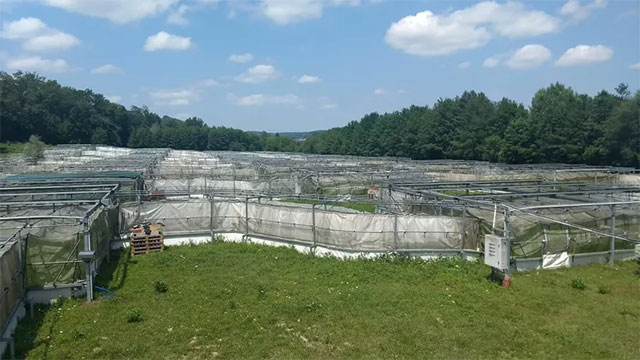New research on butterflies suggests insects may be smarter than we think
But few people think about their intelligence. So how smart can tiny creatures with even 'insignificant' brains really be?
When biologists began to study more deeply about how animals think, even insects were seen from a different perspective. Recently, a new study from the University of Bristol found that the Heliconius butterfly is even capable of spatial learning. This study also provides the first experimental evidence of spatial learning in any butterfly or moth species.

In fact, we have known about spatial learning in insects for a long time, but mainly in ants and bees that live collectively in a common nest. However, as noted by the research team from the University of Bristol, 'complex learning skills, such as using spatial information, may actually be much more common in the insect world. compared to previous scientific thinking'.
' It's fascinating to learn about the complex behaviors that even familiar animals like butterflies exhibit as part of their natural ecosystems ,' said Dr Stephen Montgomery, School of Biological Sciences at the University University of Bristol, said the research team leader. ' These tiny insects are extracting and processing diverse information from their surrounding habitat, and using that data to perform a variety of complex tasks – all done with a single brain only a few millimeters ' wide.
The team set up spatial learning experiments in Heliconius butterflies on three different environmental scales, each representing ecologically relevant behaviors.
The first study was small-scale, testing whether butterflies could learn the location of a food reward in a 1 square meter area containing 16 artificial flowers, representing foraging in an area. Unique resource or not.
They then increased the spatial scale to see whether the Heliconius butterfly could learn to associate food with areas on the left or right of the 3-square-meter, two-armed maze.
Finally, they increased the distance again by using large outdoor cages to see if the animals could learn the location of food in a 60-square-meter T-maze.
The results showed that Heliconius butterflies were successful in all three scenarios.

Talking about the experiment results, Dr. Montgomery said:
Wild Heliconius butterflies appear to be able to learn the locations of reliable pollen sources and establish long-term 'trap' systems. Trap lines are foraging routes learned after repeated foraging attempts - an effective food source exploration strategy similar to the behavior of some orchid bees and bumble bees . However, the spatial learning abilities of Heliconius, or indeed of any butterfly, cannot yet be tested in detail.
Overall, the results of the study show that Heliconius butterflies can learn spatial information on a larger scale.
Next, the researchers plan to look at the relative proficiency of Heliconius in spatial learning compared to closely related species that do not eat pollen. This will help reveal how the evolution of enhanced cognitive abilities may be shaped by an animal's ecology.
The team also plans to study how Heliconius butterflies find their way around the world. It's believed that visual cues, such as panoramic views, play an important role in this—but they may also rely on other cues, such as the sun or the geomagnetic compass .
The above study is titled 'Rapid expansion and visual specialization of learning and memory centers in the brains of Heliconiini butterflies', and was published in the journal Current Biology.